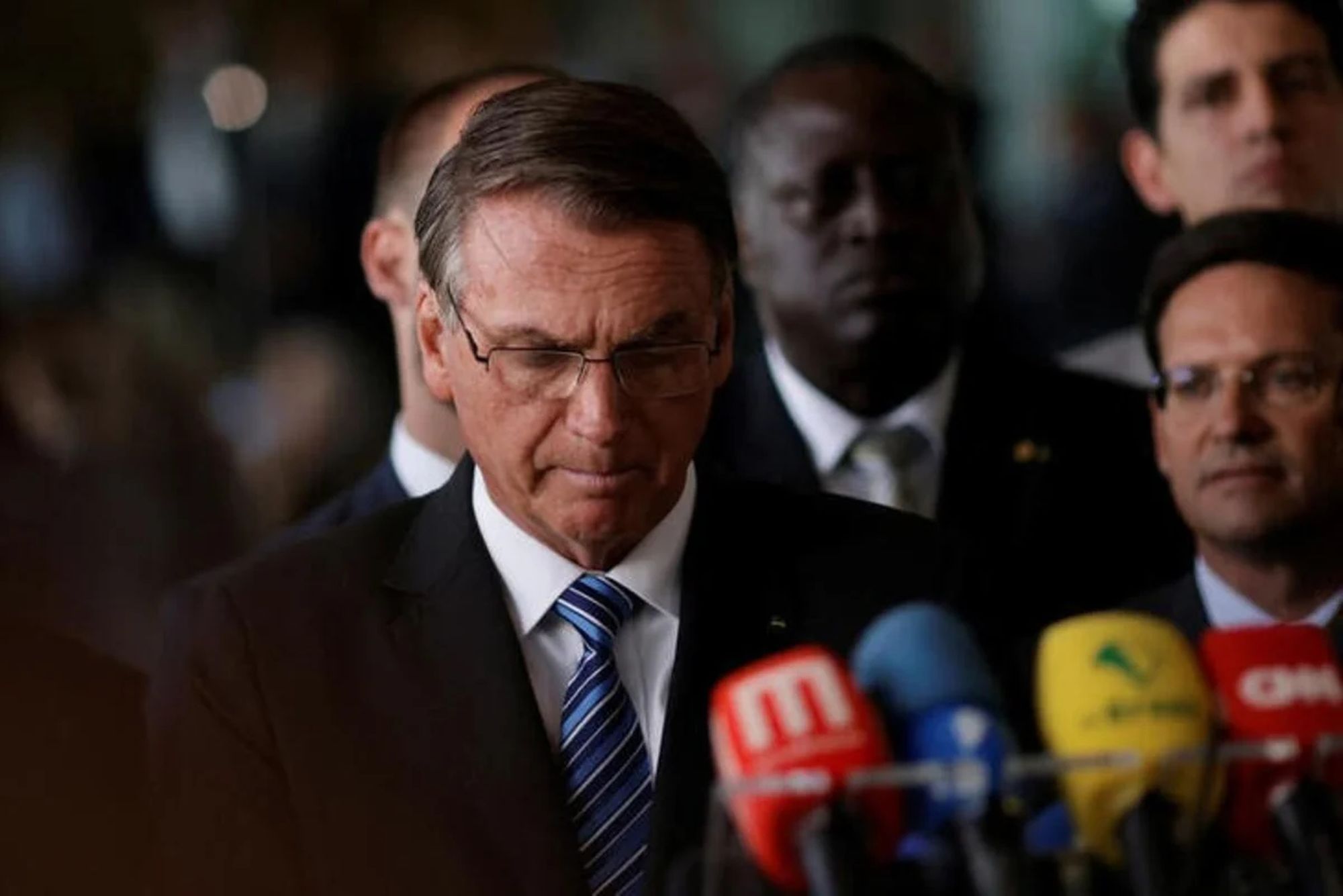Brazil’s Supreme Court has unanimously accepted a complaint against former president Jair Bolsonaro and seven allies for attempting a coup d’état.
Bolsonaro governed Brazil between 2019 and 2022, but lost his attempt at re-election to current president Luiz Inácio Lula da Silva.
The decision is unprecedented. For the first time in the country’s history, a former president and high-ranking military officers are defendants alleged of crimes linked to a coup d’état.
Besides Bolsonaro, there are other five members of the military accused of being at the heart of a plot. These are General Braga Netto, who was Bolsonaro’s minister and vice-presidential candidate; General Heleno, who was minister of the office of institutional security; General Nogueira, who was minister of defense; Admiral Garnier, former commander of the navy; and Lieutenant-Colonel Mauro Cid, Bolsonaro’s former main aid, who had become a whistleblower.
The other two defendants are Anderson Torres, former minister of justice, and federal congressman Alexandre Ramagem, former director of the Brazilian intelligence agency.
The indictment
In February, the general prosecutor had indicted these individuals for the crimes of attempting to abolish the democratic state of law, coup d’état, qualified damage and damage to listed heritage, and armed criminal organization. The sentences could exceed 30 years in prison.
In all, 34 people were indicted. The next complaints to be examined by the court concern the “military nucleus”, responsible for tactical actions. Then, the court will judge complaints regarding the nucleus responsible for organizing the actions. Finally, it will analyze claims concerning those accused of coordinating the disinformation initiatives.
The only element that doesn’t have a trial date concerns the spread of disinformation outside Brazil.
The judgement on the complaint
All members of the panel voted to accept the charges. The rapporteur, Justice Alexandre de Moraes, stated that the judiciary “will not be intimidated by digital militias, whether national or foreign, because Brazil is a sovereign country”.
Justice Moraes argued that the organization sought to undermine the democratic rule of law, acting until January 2023. He also indicated that Bolsonaro led this structure, using disinformation about the elections to instigate the coup attempt.
Other justices pointed out that the defenses did not deny the coup attempt, but focused on maintaining their clients’ innocence. All justices repudiated acts that undermine the democratic rule of law and Brazilian institutions.
Next steps
Now that the complaint has been accepted, the panel will set the dates for the hearings and testimonies of the witnesses and the defendants. Then it will analyze the evidence produced throughout the process.
After these phases, the panel will summon the defendants and the prosecution for their closing arguments. It is then that the panel will decide on a possible conviction. If the defendants are convicted, they will begin serving their sentences only after the appeals are over.
The process is expected to develop over the next few months. Because of the 2026 elections, there is some expectation that the process will be finalized this year.
Another Brazilian example
The decision can be seen as yet another example that Brazil is setting for the world. Many believe the country can yet be a model for secure and efficient elections. Judicial initiatives to combat disinformation have become a reference to other countries.
State institutions have already responded to the insurrection of 8 January 2023. This unprecedented decision that made a former president and high-ranking officers defendants for an attempted coup d’état reinforce the central role of the justice system in the defense of democracy.
Felipe Tirado is a PhD candidate in Law at King’s College London
This article was originally published in The Conversation. Read the original article here:
https://theconversation.com/former-brazilian-president-bolsonaro-will-stand-trial-over-alleged-coup-attempt-253198




